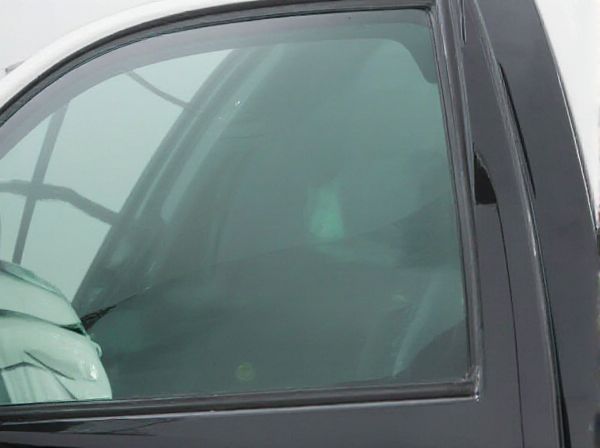
Photo illustration: Hardcoat vs Softcoat Safety Glass
Hardcoat safety glass features a durable, scratch-resistant surface ideal for high-traffic areas, providing long-lasting clarity and protection. Softcoat safety glass offers superior energy efficiency by reflecting infrared heat, making it suitable for climates requiring enhanced insulation. Your choice depends on whether durability or thermal performance is the primary need for your safety glass application.
Table of Comparison
| Feature | Hardcoat Safety Glass | Softcoat Safety Glass |
|---|---|---|
| Coating Type | Hard, fused ceramic layer | Multiple thin metallic layers |
| Durability | Highly scratch-resistant | Moderate scratch resistance, requires careful handling |
| Optical Clarity | Good clarity with slight haze | Superior clarity, minimal distortion |
| UV Protection | Basic UV filtering | Advanced UV blocking capabilities |
| Heat Rejection | Low to moderate heat rejection | High heat rejection and infrared reflection |
| Cost | Lower cost, budget-friendly | Higher cost due to technology |
| Use Case | Standard vehicle windows | Luxury and high-performance vehicles |
Introduction to Hardcoat and Softcoat Safety Glass
Hardcoat safety glass features a durable, hard layer of silicon dioxide applied during the glass manufacturing process, providing excellent scratch resistance and durability ideal for automotive and architectural applications. Softcoat safety glass involves depositing thin metallic layers using a vacuum process, enhancing thermal insulation and energy efficiency while maintaining safety standards. Both coatings comply with safety regulations but serve distinct purposes based on performance requirements and environmental conditions.
What Is Hardcoat Safety Glass?
Hardcoat safety glass is a type of tempered glass with a durable, chemically bonded coating that enhances scratch resistance and durability. It is commonly used in automotive windshields and electronic displays where impact resistance and surface protection are critical. This coating process improves the glass's lifespan by preventing surface damage without compromising optical clarity.
What Is Softcoat Safety Glass?
Softcoat safety glass, also known as low-emissivity (low-E) glass, features ultra-thin metallic coatings applied in a vacuum chamber to enhance thermal insulation and energy efficiency. These coatings reflect infrared energy while allowing visible light to pass, reducing heat transfer and lowering energy costs in buildings. Compared to hardcoat glass, softcoat safety glass offers superior performance in thermal insulation, making it ideal for energy-efficient windows and facades.
Manufacturing Processes Compared
Hardcoat safety glass undergoes a chemical or physical treatment that creates a durable, scratch-resistant surface by bonding a hard layer directly onto the glass during manufacturing. Softcoat safety glass, also known as low-emissivity (Low-E) glass, is produced by sputtering multiple thin metal or metallic oxide layers onto the glass in a vacuum chamber, resulting in enhanced thermal insulation properties. The hardcoat process emphasizes surface protection and durability, while the softcoat technique prioritizes energy efficiency through advanced coating technology applied post-glass formation.
Durability and Lifespan
Hardcoat safety glass features a durable, chemically hardened surface that resists scratches and abrasions, making it ideal for environments with high impact or frequent cleaning. Softcoat safety glass, coated at lower temperatures with sputtered layers, offers superior clarity and UV protection but is more susceptible to surface damage. The lifespan of hardcoat glass generally exceeds that of softcoat glass in rugged applications due to its enhanced hardness and resistance to wear.
Performance in Safety and Security
Hardcoat safety glass features a durable, abrasion-resistant surface that enhances scratch resistance and maintains clarity over time, making it ideal for high-impact environments requiring long-term durability. Softcoat safety glass employs thin, metallic oxide layers applied in a vacuum, offering superior thermal insulation and improved UV protection without compromising transparency. While hardcoat excels in mechanical toughness and surface hardness for security applications, softcoat provides enhanced safety through better energy efficiency and resistance to environmental wear.
Energy Efficiency and UV Protection
Hardcoat safety glass features a durable, chemical-treated surface that enhances scratch resistance and provides moderate UV protection, making it suitable for energy-efficient window applications. Softcoat safety glass, typically produced through sputter coating, offers superior energy efficiency by reflecting infrared radiation while allowing visible light transmission and provides enhanced UV blocking capabilities to protect interiors from harmful rays. Both types contribute to energy savings, but softcoat glass excels in minimizing heat transfer and maximizing UV protection for improved building performance.
Maintenance and Cleaning Requirements
Hardcoat safety glass features a durable, scratch-resistant surface that requires minimal maintenance and can be cleaned with standard glass cleaners without risk of damage. Softcoat safety glass has a delicate, low-emissivity coating that demands gentle cleaning methods using non-abrasive, pH-neutral solutions and soft cloths to prevent deterioration and preserve thermal performance. Proper cleaning and maintenance of each type ensure sustained clarity, safety, and functional longevity.
Cost Differences and Value Analysis
Hardcoat safety glass typically offers lower upfront costs due to its simpler manufacturing process, making it a budget-friendly choice for standard safety applications. Softcoat safety glass, featuring a more complex vacuum deposition process, commands higher prices but provides superior thermal insulation and energy efficiency, adding long-term value. Evaluating cost differences alongside performance benefits helps determine the optimal balance between initial investment and durability for specific safety glass needs.
Choosing the Right Safety Glass for Your Needs
Hardcoat safety glass features a durable, scratch-resistant surface ideal for high-impact environments such as automotive windshields and industrial applications. Softcoat safety glass offers superior thermal insulation and clarity, making it suitable for architectural glazing and energy-efficient building designs. Choosing the right safety glass depends on factors like impact resistance requirements, environmental conditions, and desired energy efficiency performance.
 caratoz.com
caratoz.com